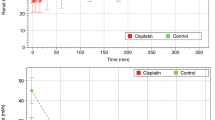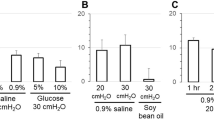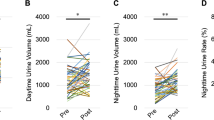Abstract
THE biochemical abnormalities produced in the blood of mammals when renal function is suppressed are well known. A systematic study of the blood chemistry of renal failure in lower species is desirable, and should provide a useful procedure in the study of extrarenal regulatory organs.
This is a preview of subscription content, access via your institution
Access options
Subscribe to this journal
Receive 51 print issues and online access
$199.00 per year
only $3.90 per issue
Buy this article
- Purchase on Springer Link
- Instant access to full article PDF
Prices may be subject to local taxes which are calculated during checkout
Similar content being viewed by others
References
Conway, E. J., Microdiffusion Analysis and Volumetric Errors (Crosby Lockwood and Sons, Ltd., London, 1950).
Uranga, J., Rev. Soc. Argent. Biol., 34, 161 (1958).
Author information
Authors and Affiliations
Rights and permissions
About this article
Cite this article
CARLOS MONGE, C. Effect of Bilateral Ligature of Ureters on the Concentration of Sodium, Potassium, Urea and Total Solutes in the Plasma of Toads. Nature 193, 1185–1186 (1962). https://doi.org/10.1038/1931185a0
Issue Date:
DOI: https://doi.org/10.1038/1931185a0
Comments
By submitting a comment you agree to abide by our Terms and Community Guidelines. If you find something abusive or that does not comply with our terms or guidelines please flag it as inappropriate.



